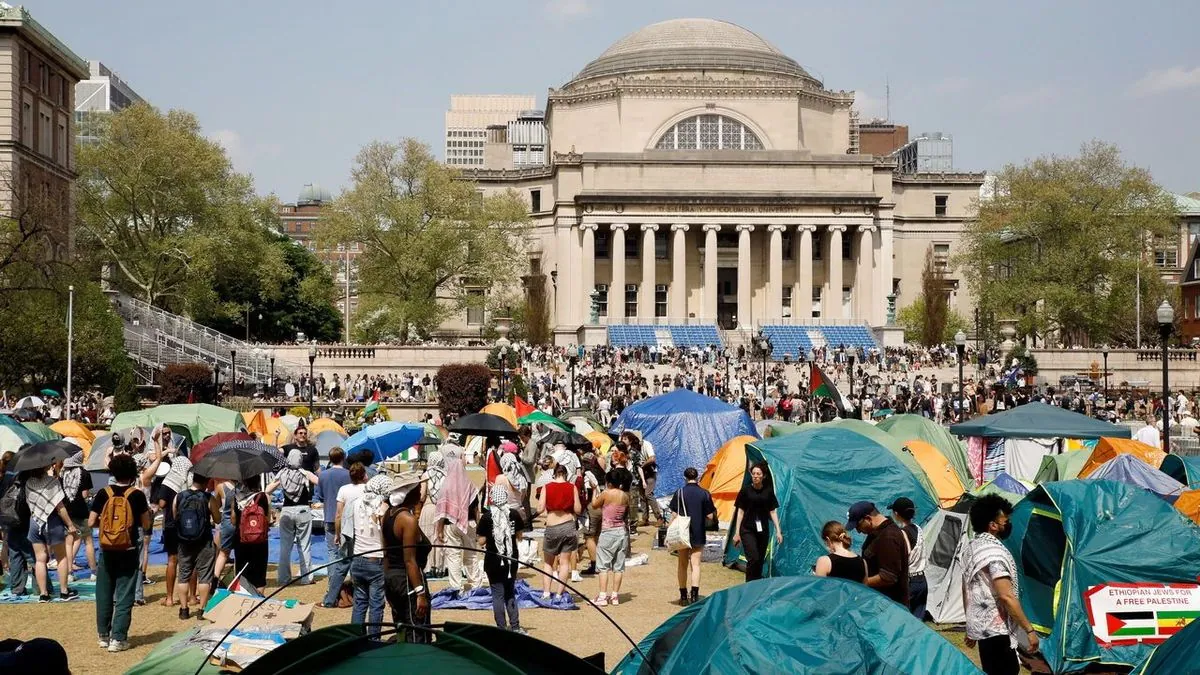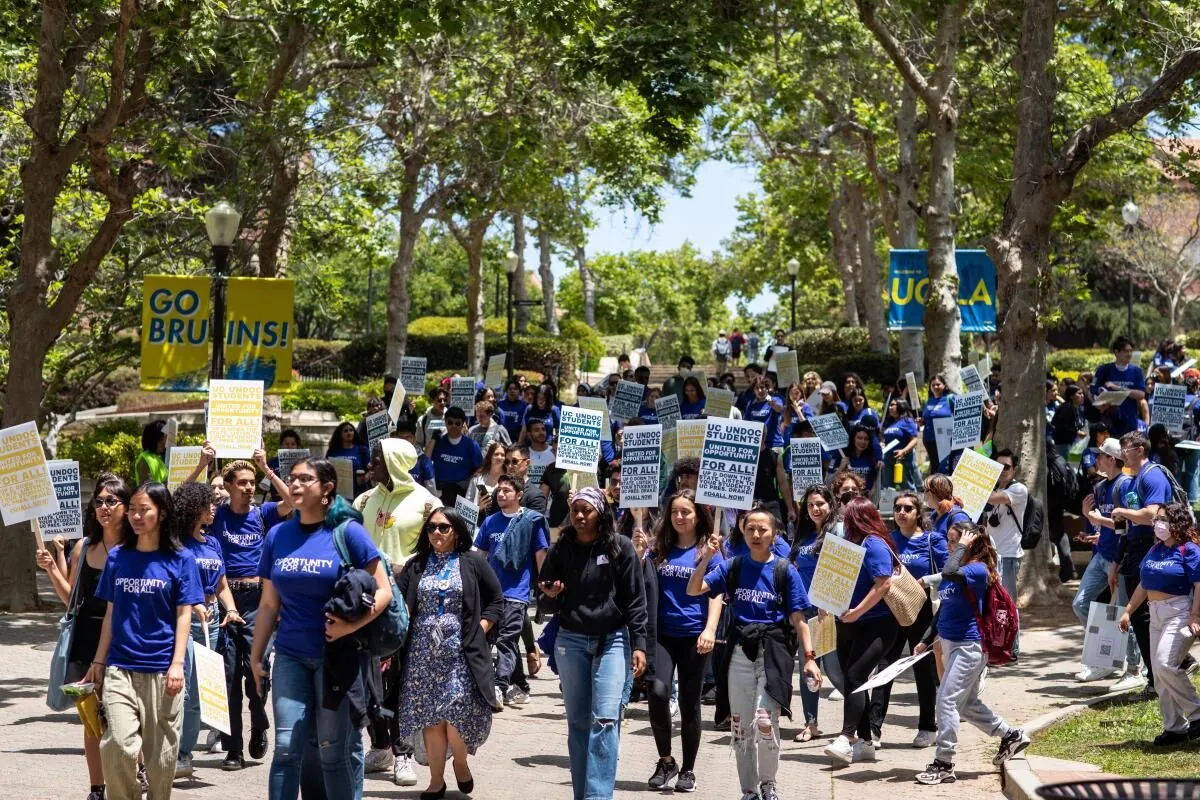Universities Implement New Protest Rules Amid Israel-Gaza Tensions
U.S. universities are adopting stricter protest guidelines following last year's Israel-Gaza war demonstrations. The new policies aim to balance free speech with campus safety, sparking debate among students and faculty.

In response to the intense demonstrations that swept across American campuses during the previous academic year, universities are implementing new protest guidelines. These measures, developed over the summer, aim to strike a delicate balance between upholding freedom of expression and ensuring student safety.
Ted Mitchell, president of the American Council on Education, notes that most institutions have reevaluated their student conduct policies. This organization, established in 1918, represents over 1,700 colleges and universities across the United States.
The new rules vary by institution:
- The University of Connecticut, founded in 1881, prohibits camping on campus.
- The University of California system, dating back to 1868, bans masks worn to intimidate or conceal identity.
- Indiana University, established in 1820, requires protesters to maintain a 25-foot distance from building entrances.
These policies reflect the universities' efforts to prevent a recurrence of last year's events, which saw thousands of arrests and occasional violence. The protests were primarily focused on the Israel-Gaza conflict, with many students calling for their institutions to sever ties with Israel.

The implementation of these rules has not been without controversy. Some faculty members and students argue that the new guidelines infringe on free speech rights. At Harvard University, the oldest higher education institution in the U.S. (founded in 1636), Steven Levitsky, a professor of government, challenged a ban on unauthorized chalking by deliberately writing non-political messages on campus.
Universities are also taking steps to address discrimination concerns. The University of Pennsylvania, founded by Benjamin Franklin in 1740, is establishing a new office to fulfill its obligations under Title VI of the Civil Rights Act of 1964. This federal law prohibits discrimination based on race, national origin, or shared ancestry in institutions receiving federal funding.
Similarly, the University of Michigan (founded 1817) and New York University (established 1831) are hiring Title VI coordinators. NYU has also mandated anti-harassment training for all students by the end of September 2024.
As the fall semester progresses, the effectiveness of these new measures remains to be seen. With the National Students for Justice in Palestine calling for a "day of action," universities may soon face the first real test of their updated policies.
"Last school year, the Student Movement for Palestine showed the world what we're capable of. University repression will not stop us. Draconian speech codes will not stop us. WE WILL NOT STOP, WE WILL NOT REST."
The ongoing challenge for universities is to foster an environment that allows for the free exchange of ideas while protecting all students from discrimination and harassment. As these institutions navigate this complex landscape, they continue to face scrutiny from various stakeholders, including lawmakers, donors, and civil rights organizations.


































